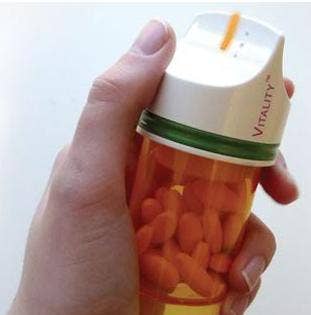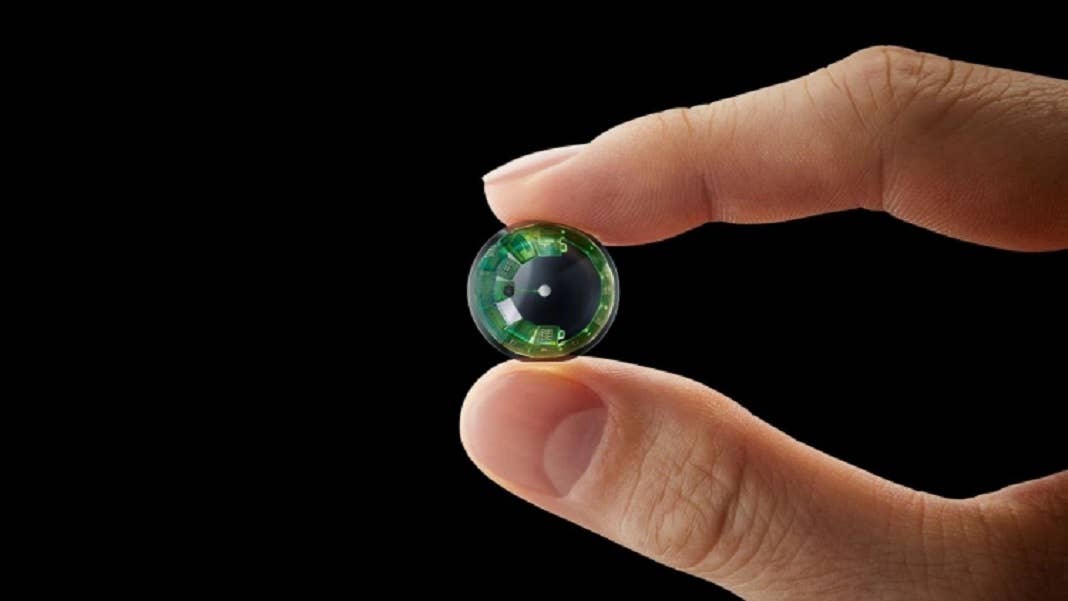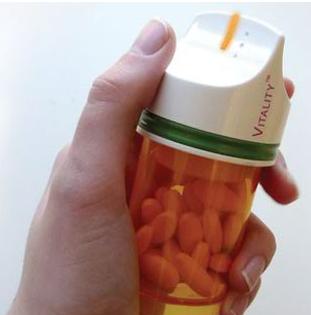GlowCap Uses Light, Sound, Embarrassment to Get You To Take Your Pills (video)

Share
The New England Healthcare Institute estimates that patients not taking their pills when they should costs the US $290 billion dollars a year. Vitality is hoping to recover some of that money by using any means necessary to get you to take your prescription. Their GlowCaps fit on the top of prescription bottles and wirelessly communicate with the internet to know when you should be dosing yourself. If you miss a pill, the GlowCap and an associated nightlight both start glowing. If you still haven't taken the pill an hour later, it starts beeping. After that, it calls you on your home phone. If that wasn't enough to keep you on your medication, GlowCap sends a weekly email to you and to any family member you select reporting on your progress. Your doctor gets a monthly update on how you've done. There's even a Facebook Application! Clearly the thinking is that social pressures will succeed if all other forms of harassment fail. The Wall Street Journal reports that pharmaceutical distributor Express Scripts is starting a small scale test of GlowCap in April. If successful, the program could be extended. Using electronic harassment and peer pressure to make you take your pills is just another way in which monitoring your body is going to upgrade us to healthcare 2.0.
Want to know more about how GlowCap works? This kindly old man will explain it to you.
Vitality has run a beta test of GlowCaps in Boston. The average amount of pills taken on time (the compliance rate) was 86%. That's a major improvement over the standard rate at which daily medications are taken - typically around 50% but sometimes even lower.
Be Part of the Future
Sign up to receive top stories about groundbreaking technologies and visionary thinkers from SingularityHub.


GlowCaps are unique in the degree to which they use shame to keep you focused on taking your prescription. The system may only cost you around $100 to buy, but the social price you pay should you ever get too lazy, forgetful, or obstinate to take your meds is immeasurable. Why, your entire family could start doing commercials about you behind your back:
Strangely enough, GlowCap isn't the most invasive way to insure patients take their medication. We've seen pills with transmitters that track whether or not they've been successfully swallowed. Clearly wireless technology is going to have an impact on improving your health in the next few decades. Besides pills, WiFi signals could help you track your vital signs and your emissions. Health monitoring will keep you and your doctor in a steady stream of digital data. Combined with better analytical tools, this information will provide a level of personalized healthcare you've never experience before. Sounds pretty good. I'm a little wary of a system that approaches prescription drugs the way that governments approach terrorist monitoring, but if it keeps the old people doped up, I'm all for it.
That was a joke. Please don't tell my Nana.
[image credit: Vitality]
[video credits: Vitality]
[sources: Vitality, Wall Street Journal]
Related Articles

This Portable Wind Turbine Is the Size of a Water Bottle and Charges Devices in Under an Hour

Mojo Vision’s New Contact Lens Brings Seamless Augmented Reality a Step Closer
The Weird, the Wacky, the Just Plain Cool: Best of CES 2020
What we’re reading
